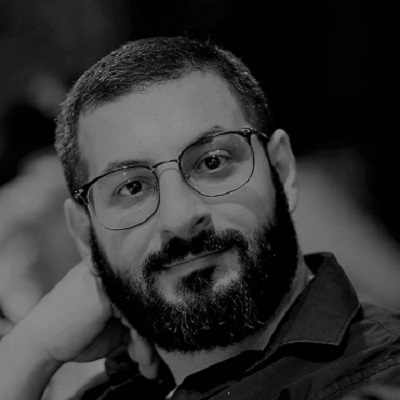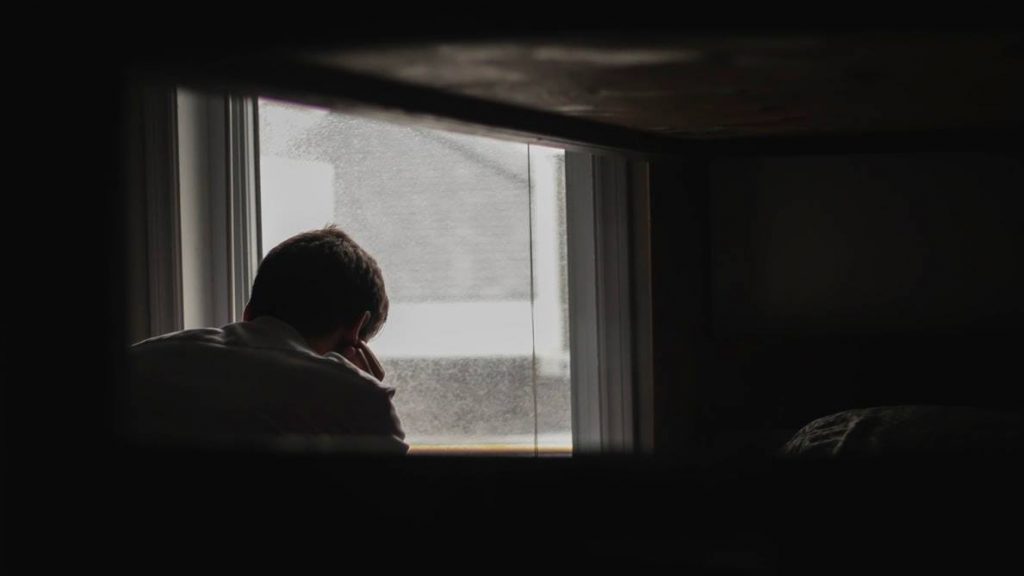The fight for Karabakh is over, but the battle with PTSD is just beginning
The second Karabakh war has come to an end, but the war that began on September 27, as well as the events that followed the signing of the trilateral truce, have brought with them serious psychological trauma.
Below a look at who is trying to help people overcome the psychological consequences of war in Armenia and how.
- Op-ed: Armenia must consider political realignment for Karabakh
- Video – Armenians say goodbye to shrines, territories to be transferred to Azerbaijan
- Op-ed: ‘Blood, toil, tears and sweat’ – solving the Armenian political crisis
Two weeks after the war
32-year-old Artur (not his real name) knows the Karabakh roads like the back of his hand – his wife is from there. He is an ambulance driver and his professionalism has saved the lives of dozens of patients in his hometown of Goris. During the war, almost all ambulances from the nearest Armenian settlements were sent to Karabakh.
“Goris is also a border town, here the wounds from the first war had still not healed completely. True, during that war I was a child, but I heard many stories about it. When they said that I was being sent to Karabakh to transport the wounded, it was clear that it would be difficult, but I could not even imagine that I was going to real hell.
“My older colleagues who worked during the previous war talked about the wounded, traumas, but their stories had nothing to do with what I had to see,” recalls Arthur.
In the first month of the war, he transported 143 wounded soldiers in his car. Some of them could not overcome the path to the hospital, the faces of many are cut into Arthur’s memory:
“The injuries of this war were very different – the weapons were different. I don’t think I’ve seen a single gunshot wound these days. There were many injuries to limbs – the soldiers lost their arms and legs, there were shrapnel injuries.
We were told that if we drove faster than 80 km/h, it would be difficult to hit us from the air. Then I realized it didn’t help. Fire literally erupted from the sky. We avoided it in zigzags, and all I could think about was to take the guys to the hospital.”
Two weeks after the war, he realized that something was happening to him. He couldn’t sleep even during the short breaks between work. There was constant uneasiness, especially in Stepanakert, where the air-raid alarm was almost never deactivated. His hands trembled and his appetite disappeared. Reports of ambulances being fired upon were coming in. But still he waited for the end of the shift before returning to Goris.
“I tried to convince myself that it was because of fatigue, I would return home, rest – and everything would pass. But then I realized: I jump up from the bright light, noise, in my ears there is a constant rumble of explosions and groans.
“It’s hard when you know that you have a guy in your car with a broken leg or spine, and you can’t go around a hole on a road destroyed by bombings, and with every hole, a hopeless scream cuts your ears. A week after returning home, I realized that I had a serious problem, and, worst of all, it affects my family and children,” says Artur.
His family has turned to the Armenian Defense Ministry for help.
Psychological help
During the First Karabakh War in the early 90s and even the April War of 2016, a single specialized center was assigned to treat post-traumatic stress. And during and after the Second Karabakh War, psychological assistance is offered by both state structures and clinics, and groups of specialists outside the state system.
For servicemen and direct participants in the war, the first psychological aid is provided by a structure under the Ministry of Defense. In the center organized in the city of Dilijan, they receive inpatient treatment, which, if possible, mitigates acute stress conditions.
To provide psychological support to children injured during the war, a hotline has been created under the Ministry of Education, Science, Culture and Sports.
To address the psychological problems caused by the war, a professional group of psychologists was formed by the Ministry of Labor and Social Affairs. The department has a psychological help hotline for about a month, which provides consultations by phone. This service has already been used by up to 400 people.
Many professional groups have formed to overcome the psychological consequences of the war and to help the victims. They offer their own services to those who may need them, and from the first day of the war, most work for free.
Experts on how to treat PTSD
MHS is one such initiative offering free help to war veterans and their families since November 10.

“From the very first days of the war, like many other specialists, I also began to work with people who suffered during the war, soldiers. The more I worked with them, the more I realized the seriousness of the problem. After November 10, when the ceasefire declaration was signed, together with colleagues they decided to organize this free psychological assistance program – not only for the soldiers, but also for their families, ”says Aram Hovsepyan, initiator of the program, psychiatrist and psychotherapist.
According to the specialist, psychological work should be carried out to address three main issues:
- war injuries (fears taken from the battlefield; injuries and deaths seen by soldiers),
- defeat affecting a large group of people,
- the factor of uncertainty associated with the situation in the country as a whole and with the fact that government agencies have left some groups of people to fend with their problems on their own.
“In the first days of the war we mainly faced purely military traumas, today, especially after the signing of the trilateral agreement, we are dealing with two other factors that directly affect public health.
“It is already obvious that we are dealing with a rather deep psychological problem that can have a long-term and severe impact on an entire generation, if today we do not tackle it very intensively,” says the psychologist.
Aram Hovsepyan says today the main work is with acute stress reactions caused by the loss factor, fears and feelings of despair, but it is obvious that in the coming months the number of post-traumatic stress disorders will increase:
“Today we are trying to consolidate our work with other professional groups, as long-term work is expected to overcome post-traumatic stress and neutralize the impact of war on public health.
“In addition, we have another serious problem – the use of psychotropic substances and alcohol, which, as a rule, intensifies in such circumstances, as people try to alleviate their trauma in this way.”
The expert is sure that tens of thousands of people need psychological help today, but over the past two weeks only 17 people have turned to the MHS center. In his opinion, this is due to a common stereotype that you can cope with such a psychological problem on your own:
“Working with families, we noticed that in the case of teenagers, people turn to a psychologist more often, but in the case of soldiers, the situation is perceived differently. First, many live in rural areas, where there is little information about psychological services, and it often does not correspond to reality.
In addition, this trauma becomes such an important factor for the soldiers that the experience and experiences of other people for them unwittingly devalue. They are not sure if anyone can understand their experience and help them. At the moment, this is our most serious challenge, and in this regard, we need to do a lot – working with people, including in the regions. “
The second challenge, according to the expert, is that there is almost no relevant experience of psychological work that could be applied in Armenia. In countries where such hostilities took place, for example, in Syria, Afghanistan, Ukraine, there has not yet been an opportunity to conduct in-depth research.
Arthur’s inpatient treatment has already ended. He returned to Goris, but has not yet returned to work. Before getting behind the wheel, he will need to undergo rehabilitation treatment. He says he feels much better, does not get angry when the children make noise, less often wakes up at night, although he still looks for drones in the sky with his eyes.
Arthur knows that hard times are still waiting for him, he will not be able to forget everything – and he does not want to. Moreover, the new interstate border with Azerbaijan can be reached on foot in just 20 minutes from his house.

Toponyms, terminology, views and opinions expressed by the author are theirs alone and do not necessarily reflect the views and opinions of JAMnews or any employees thereof. JAMnews reserves the right to delete comments it considers to be offensive, inflammatory, threatening or otherwise unacceptable


















